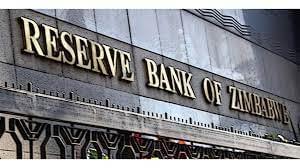THE Reserve Bank of Zimbabwe’s Financial Intelligence Unit has deployed teams to investigate pharmacies that are engaging in forward pricing, a practice that is believed to be fuelling exchange rate volatility.
FIU director-general Mr Oliver Chiperesa told The Sunday Mail that market surveillance has seen players in the pharmaceuticals sector being flagged for allegedly flouting exchange control regulations and indexing their prices above permitted exchange rate ranges.
Close to 20 companies recently had their bank accounts frozen for malpractices that include forward pricing and reluctance to transact in the local currency.
Forward pricing involves quoting prices using projected future exchange rates.
Mr Chiperesa described the pharmaceutical sector as “the last bastion of exchange rate manipulation”.
The development comes at a time when the Zimbabwe dollar has begun to gain against the United States dollar on both the official and black markets in response to interventions rolled out by the Government in May.
“We are continuing with our surveillance,” said Mr Chiperesa.
“As I speak, we have sent teams out of Harare, where we have noticed that there are still incidents of non-compliance. We are focusing on pharmacies, which have continued to present problems in the sense that a lot of them are still engaging in forward pricing.
“We have been seeing a lot of pharmacies using exchange rates of up to $10 000: US$1, which, as you know, are even higher than the parallel market rate.
“The parallel market exchange rate is now somewhere close or even at the same level as the official rate. But pharmacies, for some reason, tend to come up with their own exchange rates.
“Many of them are using the $10 000:US$1 exchange rate, and we have others going as high as $12 000:US$1.”
The FIU, he said, was going to deal with the non-compliant pharmacies.
He, however, said there was now increased compliance with exchange control regulations in the retail sector.
“The closing of the gap between the parallel market and interbank exchange rates has reduced arbitrage opportunities that were being taken advantage of by illicit foreign currency dealers and some corporates.
“Incidences of forward pricing are now on the decrease,” he said. Sunday Mail












